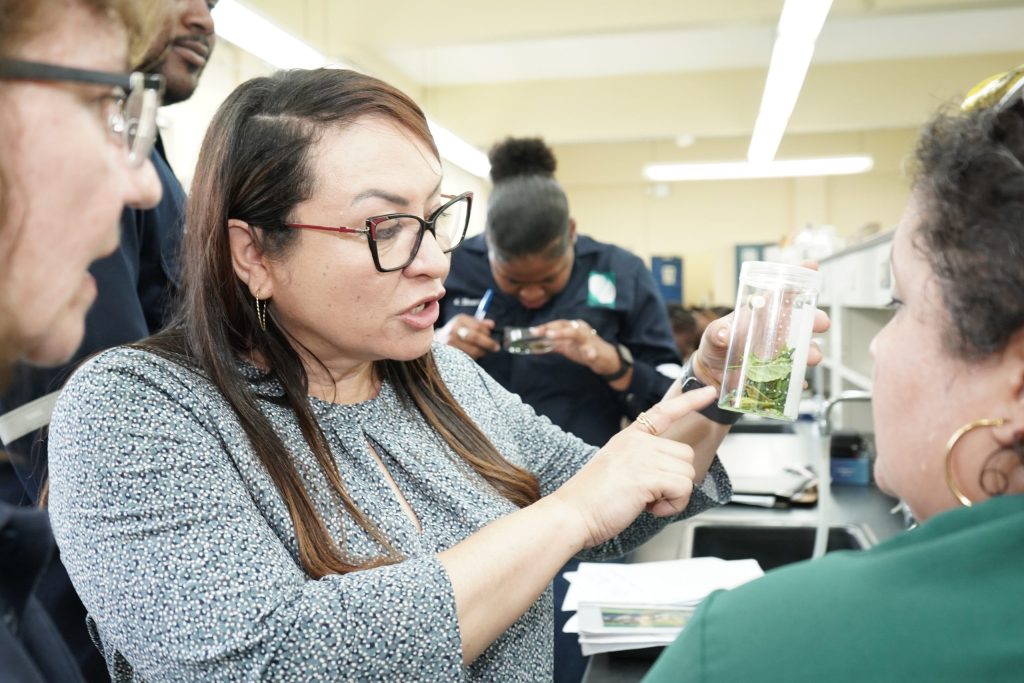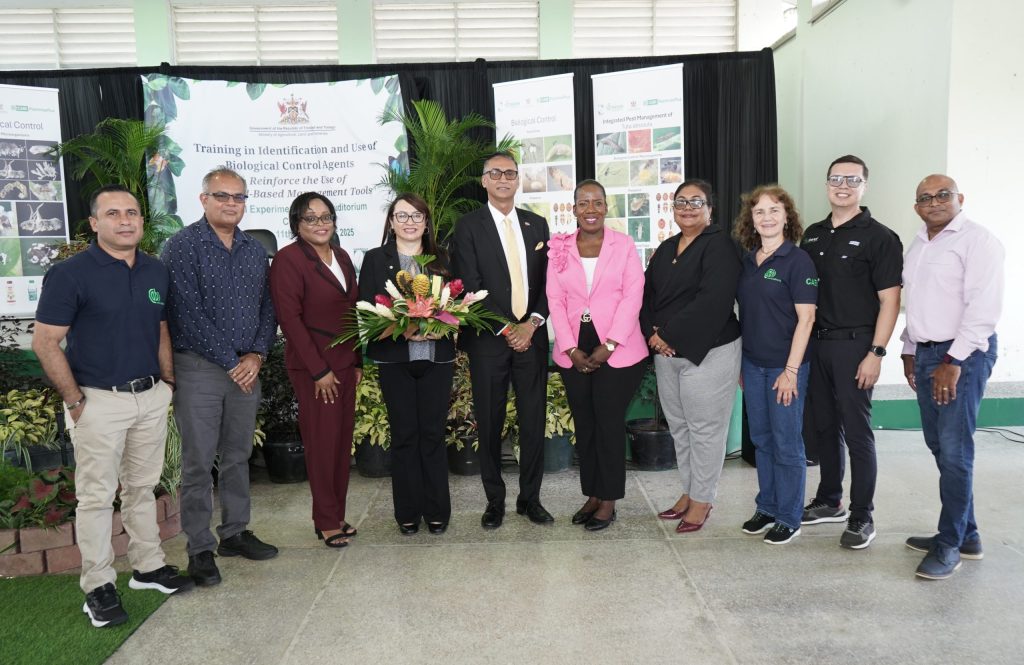Earlier today (September 11, 2025), the Ministry of Agriculture, Land and Fisheries (MALF), in collaboration with Centre for Agriculture and Bioscience International (CABI), officially launched a three-day training programme on the Identification and Use of Biological Control Agents at the Central Experiment Station in Centeno.
The training, which is being hosted by MALF’s Extension, Training and Information Services (ETIS) Division, runs from September 11–13, with sessions taking place in both Trinidad and Tobago. Participants include ninety (90) farmers and forty-eight (48) officers from MALF’s ETIS, Research, and Regional Administration North and South Divisions, NAMDEVCO, and the Tobago House of Assembly.

Facilitated by CABI’s subject-matter experts, Dr. Yelitza Colmenarez, Ms. Claudia Sanz, Mr. Alexander Acosta, and Mr. Hugo Viancha, the training combines classroom instruction, field exercises, and laboratory work. Trainees were introduced today to the training methodology, with upcoming sessions dedicated to farmer training, hands-on demonstrations of application methods, and exposure to the range of biocontrol products available locally and regionally.
The Opening Ceremony was attended by Senator the Honourable Ravi Ratiram, Minister of Agriculture, Land and Fisheries, who delivered the Feature Address. In his remarks, the Minister underscored the importance of advancing sustainable practices in the agriculture sector, stating: “As a Government, we recognize that the future of agriculture lies in innovation, sustainability, and balance with our natural environment. It is through initiatives such as this that we can equip our officers, technicians, and farmers with the tools and knowledge they need to embrace Integrated Pest Management and protect both crops and ecosystems.”

Also in attendance at the event were members of MALF’s Executive, including Ms. Michelle Anne Thomas, Permanent Secretary (Ag.), alongside Directors and other senior officials of the Ministry.
The programme forms part of MALF’s ongoing collaboration with CABI under the Plantwise initiative, aimed at strengthening plant health services, building technical capacity, and encouraging the adoption of more sustainable and cost-effective crop protection methods.